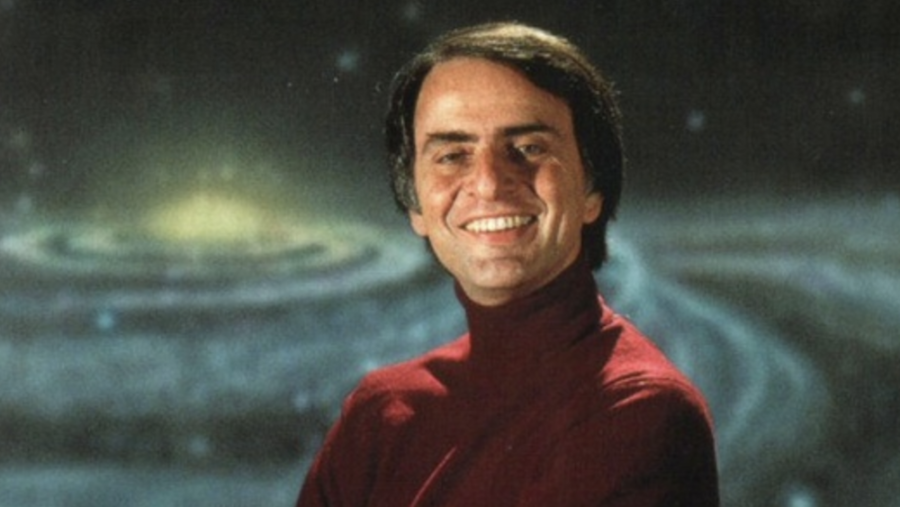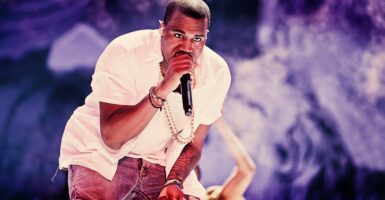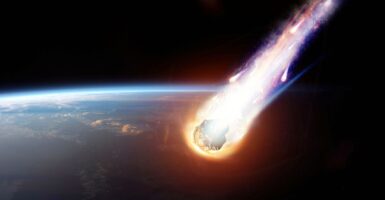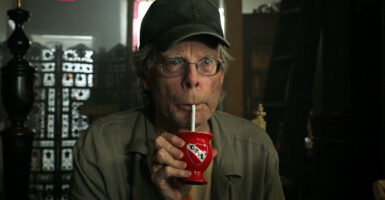A Touching Tribute To Carl Sagan
You're much missed, Carl.

Now is as good a time as any to pay tribute to one of our heroes. That would be Carl Sagan, the most famous and influential cosmologist of all time.
Carl Sagan started as a professor of astronomy at Cornell, as well as a writer and an ambassador for science and scientific thinking. I learned more from watching Cosmos than from all the science classes I ever took combined.
It’s not just that Carl Sagan understood biology, cosmology, and geology—it’s that he understood how all of these disciplines connect. He is famous for articulating that humans are made of “star-stuff,” and driving home the mind-boggling point that the universe isn’t just out there—it’s in each of us.
He simultaneously celebrated man’s uniqueness and emphasized the need for humility, as man is but a tiny cog in a giant, giant wheel. Humankind may be tiny, but Sagan stressed that we are mighty, thanks to our individual and collective intelligence, curiosity, and resourcefulness. Space exploration, he argued, was a necessary human enterprise that would bring us answers and information helpful to life on each, but also much-needed perspective:
Space exploration provides a calibration of the significance of our tiny planet, lost in a vast and unknown universe. The search for life elsewhere will almost surely drive home the uniqueness of Man: The winding, unsure, improbable, evolutionary pathway that has brought us to where we are; and the improbability of finding – even in a universe populated with other intelligences – one with a form very much like our own. In this perspective, the similarities among men will stand out overwhelmingly against our differences.
I teach some of Sagan’s essays, and inevitably, students ask in disbelief, “This guy was a scientist?” They’re shocked because they understand him, because he doesn’t write like we’ve been conditioned to believe geniuses write.
They’re shocked most of all because Sagan was a poet. He wrote like a man in love, which is exactly what he was. A man in love with science, with Earth, with the cosmos:
There is a place with four suns in the sky – red, white, blue, and yellow; two of
them are so close together that they touch, and star-stuff flows between them.
I know of a world with a million moons.
I know of a sun the size of the Earth – and made of diamond.
There are atomic nuclei a mile across that rotate thirty times a second.
There are tiny grains between the stars, with the size and atomic composition
of bacteria.
There are stars leaving the Milky Way. There are immense gas clouds falling
into the Milky Way.
There are turbulent plasmas writhing with X- and gamma-rays and mighty
stellar explosions.
There are, perhaps, places outside our universe.
The universe is vast and awesome, and for the first time we are becoming a
part of it.
As much as Carl Sagan encouraged scientific exploration, he also encouraged skepticism. In The Demon-Haunted World: Science as a Candle in the Dark, he explores the allure of science, along the way debunking pseudo-science, astrology, and the paranormal.
While interested in those subjects, Carl Sagan explained why he cannot accept them—as intriguing and popular as they are, they don’t hold up under scientific scrutiny. His ability to separate science from faux-science while at the same time maintaining respect for those who investigate and believe in those theories makes him both credible and empathetic.
You get the feeling that Carl Sagan wished accounts of alien visitations and UFO sightings could be substantiated. His sense of wonder and curiosity can’t be doubted, but at the end of the day, he believes what the science indicates he should believe.
But he always left room for the possibility that he was wrong—throughout time, scientists have gotten much wrong, he reminds readers again and again. Surely, that will keep happening. Carl Sagan was never invested in being right—he only seemed invested in searching for the truth, even when that meant discarding notions he had previously held as true to make room for new ones.
Carl Sagan was particularly deft at handling comparisons of religion and science. He didn’t see them as incompatible—in fact, he asserted and demonstrated that there’s no field more spiritual than science:
Science is not only compatible with spirituality; it is a profound source of spirituality. When we recognize our place in an immensity of light-years and in the passage of ages, when we grasp the intricacy, beauty, and subtlety of life, then that soaring feeling, that sense of elation and humility combined, is surely spiritual.
Many thought Carl Sagan was an atheist, but he wasn’t. As he didn’t have any evidence to disprove God’s existence and thus couldn’t be sure that God didn’t exist, though he did point out that science operates under the assumption that it could be mistaken.
Newtonian physics, while a pretty solid set of laws on Earth, break down in space. Nothing and no one is right all the time or forever, and while science acknowledges that both implicitly and explicitly, Carl Sagan pointed out that he’s never heard of any religion or prophet willing to make the same admission. Being able to admit that you might be wrong and that if you are, you’ll happily accept that which is proven true is what it means to be a scientist, and Sagan walks the walk.
Isaac Asimov said that Carl Sagan was one of two people he’d ever met who was smarter than him. He was also a mentor of Neil deGrasse Tyson, who stars in the reboot of Cosmos. Beyond that, Carl Sagan inspired countless scientists, and countless non-scientists as well.
No matter how technologically advanced we become, we continue to turn to Sagan for inspiration and perspective, especially about our collective future. Optimistic about humanity’s capabilities, Carl Sagan was also a realist. He understood the fragility of the human species, as of Earth. He also believed in humankind’s ability to determine its own destiny, whether it means nuking ourselves into oblivion or spreading out peacefully among the stars.
While it might be kind of silly to offer a toast to a man who has been dead for years, I want to do it anyway. Here’s to Carl Sagan, advocate for curiosity, healthy skepticism, and appreciation for all we are and all we are yet to become. I won’t pretend to know what the afterlife holds, but I hope and believe that Sagan is at home among the star-stuff that comprises the cosmos and each of us.












